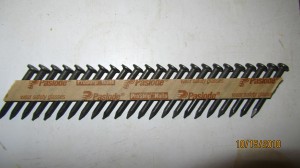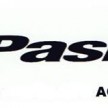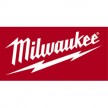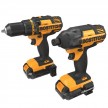Paper Collated Nails
Reasons to Use Paper Collated Nails
Not All Pneumatic Nails Are the Same: An Argument In Favor Paper Collated Nails
The term collated means: assembled in a standard order. For pneumatic nailers, collated nails are “nail assembled in strips.” These strips hold a certain number of nails and are designed easily insert into pneumatic nailers.
Using inferior nails or nails not specific to the nailer usually means more nail jams, and also premature wear and tear on the tool.
Today, Building inspectors have been known to question the structural integrity of nail connections. Examples of this are using non-shear nails in joist hangers and clipped head nails in sheathing and framing.
With today’s “race to the bottom” mentality there are a ton of lesser quality nails to choose from. High quality, code-recognized nails have an ASTM stamp or the ICC-ES stamp on the nail box.
ICC-ES-stamped nails not only meet ASTM standards but also have a third-party ICC-ES evaluation report, which provides evidence that the nails comply with structural integrity codes, and building inspectors like to see that stamp. Just ask!
3 common types of collated nails
1. paper-tape collated
2. plastic collated
3. coil collated
Paper-tape collated and plastic collated nails are the most popular in my area and also make up approximately 80 percent of the collated nail market.
Plastic collated nails still have 55 percent of that market because they are CHEAP! Plastic collated nails are less expensive to manufacture, and cost less than paper.
In years past, paper collated nail strips were affected by damp weather which would damage the integrity of a paper tape and inevitably caused tool damage or discarded nails.
Today reputable nail manufacturers make paper tape collated nails that are resistant the weather and wet conditions.

Companies like Paslode have perfected manufacturing a paper-tape collated nails for 30 degree framing nailers. These nails have a propriety high performance tape adhesion so they don’t fall apart in hot, colt or wet weather and a special process to make the paper very rigid, meaning they shear consistently when fired creating less jams and wear on your pneumatic nailer.
My experience with these new paper collated nails is that you can drop these strips in water and they won’t fall apart; of course if they sat submerged in water for hours they might eventually have issues.
Back to cost, the bottom line is: You Get What You Pay For! The paper collated nail process costs more than the plastic process but paper tape collated nails have a productivity and quality advantage over plastic that easily outweighs the difference in price.
Pneumatic framing nailers using paper tape nails jam less, don’t break when dropped, and cause less wear and tear on the tool resulting in less down time for maintenance.
Paper collated nails have better holding power.
One thing many people don’t know is that manufacturers don’t clean the oil off the nails before putting them in the plastic collation. Paper collated nails must be clean to collate them with paper. A clean nail and a tip coating mean better holding strength because there’s no oil on the nail to lessen its holding power and the heat generated by driving the nail helps bond the polymer coating to the wood.
Many manufacturers, like Paslode, also add a proprietary polymer tip coating to the cleaned nail for easier penetration. They also offer the RounDrive® nail which meets all building code requirements of a round head nail, which, until these nails came along, could only be delivered by a 20 degree framing nailer.
Nail Quality
Nail quality and the type of collated nails used can affect productivity and a tools longevity.
Considering this:
1) Plastic collated nails frequently jam, and liter the jobsite with plastic shard debris.
2) Plastic shards often fly out of the tool and can injure the user’s eyes.
3) The brittle plastic often breaks before the nail strip can be placed in the nailer, resulting in wasted nails.
4) More frequent maintenance – Plastic collated nails jam pneumatic nailers more often.










